Key takeaways:
- Participatory research is a collaborative approach that fosters co-learning and empowerment among stakeholders throughout the research process.
- This method democratizes research by involving marginalized voices, leading to richer insights and a stronger sense of community ownership over the findings.
- Key principles include co-creation, mutual respect, and building trust, which are essential for meaningful contributions and effective collaboration.
- Challenges such as varying power dynamics, differing stakeholder expectations, and maintaining trust need to be navigated to ensure successful participatory research outcomes.
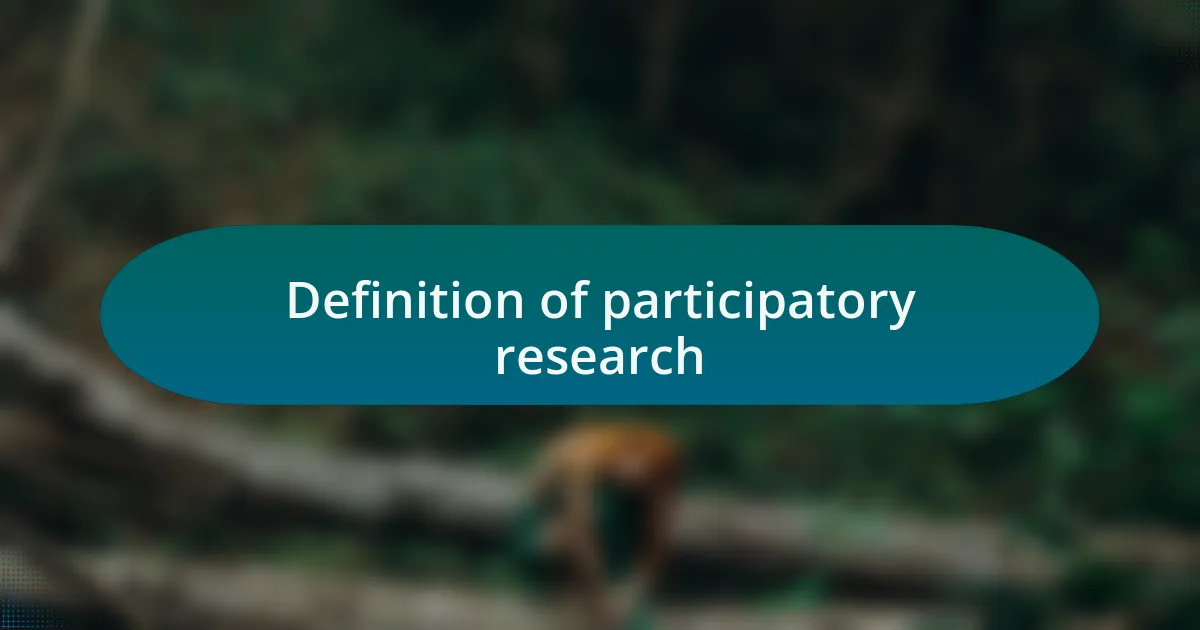
Definition of participatory research
Participatory research is a collaborative approach that actively involves all stakeholders in the research process, from the planning stage to the analysis and dissemination of results. This method emphasizes co-learning and empowerment, allowing participants to contribute their unique knowledge and perspectives. Isn’t it intriguing how this approach can transform research into a shared journey rather than a one-sided analysis?
In my experience, participatory research often leads to richer and more relevant outcomes. For instance, when working with a community to explore health issues, their insights shaped the questions we asked and the solutions we proposed. It became clear to me that when individuals feel their voices are valued, they invest more in the research—and ultimately, in their own community’s future.
What sets participatory research apart is its focus on mutual benefit and social change. It’s not merely about gathering data; it’s about fostering relationships and creating actionable knowledge. Have you ever considered how your involvement in a research project might affect both your understanding and that of your community? Engaging with participants transforms the researcher from an outsider into a trusted ally, creating a foundation for lasting impact.
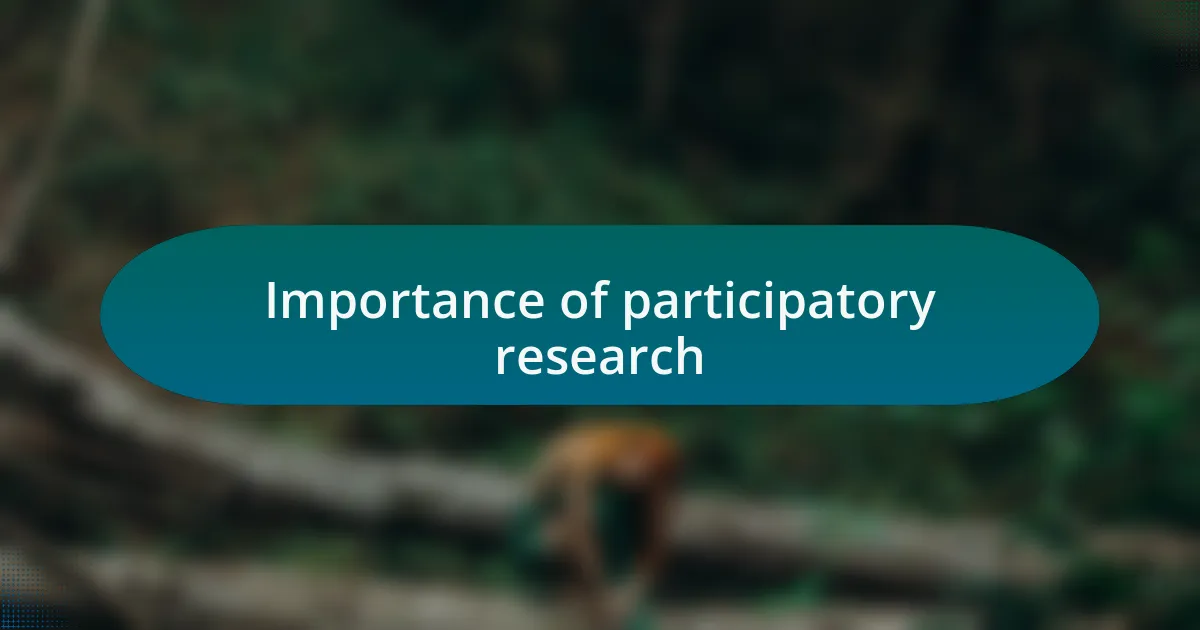
Importance of participatory research
Participatory research is vital because it democratizes the research process, giving a voice to those who are often marginalized. In my own work, I’ve witnessed how involving community members not only enriches the project but also leads to insights that a traditional research approach might overlook. This kind of collaboration fosters a sense of ownership; when participants see their contributions reflected in the outcomes, they become active agents of change.
I’ve seen firsthand how participatory research can ignite passion and commitment within a group. During a project focused on environmental sustainability, local residents raised concerns that initially seemed minor but ended up being crucial for effective solutions. Their lived experiences highlighted complexities that data alone could never capture. Isn’t it amazing how much richer our findings can be when we embrace diverse viewpoints?
Moreover, the importance of this approach lies in its potential for social impact. By empowering participants to take part in the decision-making process, we not only enhance the relevance of our findings but also build a stronger, more resilient community. Have you ever thought about how collaborative efforts can reshape the narrative of a research topic? This shift in perspective transforms the very foundation of the research, turning it into a catalyst for meaningful change.
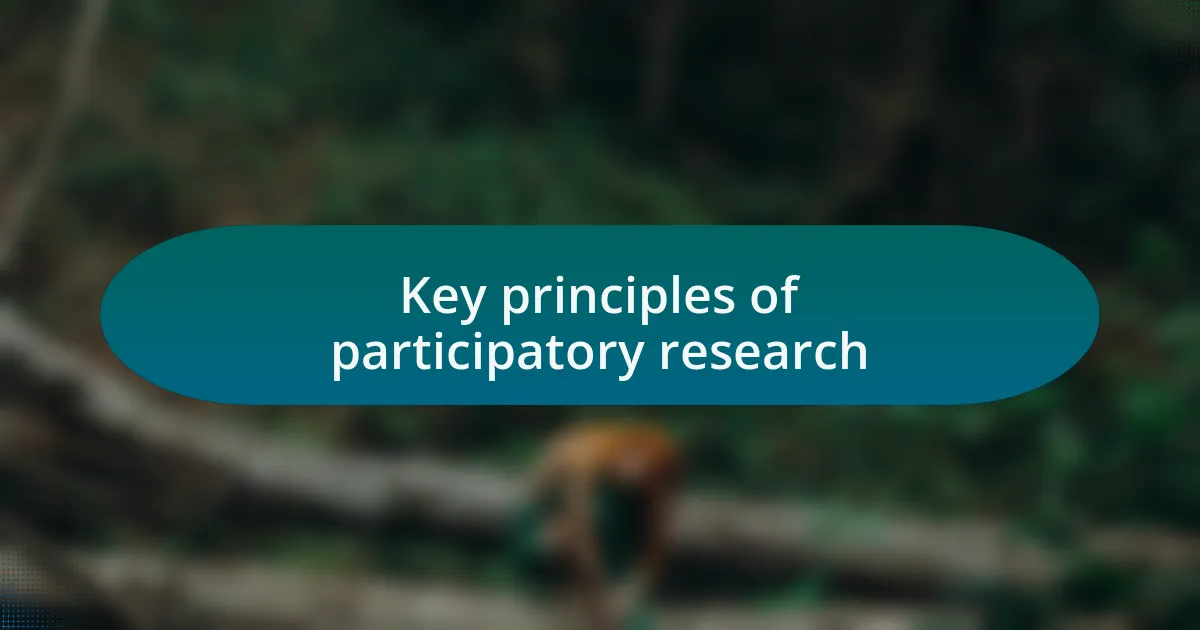
Key principles of participatory research
One key principle of participatory research is co-creation, where researchers and community members work collaboratively throughout the study. I recall a project where we partnered with local artisans to develop a market strategy for their crafts. The artisans brought invaluable insights that I could never have anticipated, confirming that their active participation brought authenticity to the entire process. How often do we truly co-create solutions, rather than just imposing our ideas?
Another essential aspect is mutual respect and trust among all parties involved. I remember a time when building trust within a community took weeks of open dialogue and shared meals. It was during these simple gatherings that barriers broke down, transforming strangers into collaborators. This experience reaffirmed my belief that relationships are the backbone of effective participatory research—without trust, how can we expect meaningful contributions?
Lastly, an iterative approach enhances the validity of findings in participatory research. In a project evaluating agricultural practices, I found that ongoing feedback loops allowed participants to refine the strategies being developed continuously. This flexibility not only improved the project but also allowed participants to feel their voices truly mattered. Isn’t it empowering to know our discoveries can evolve with input from those most affected?
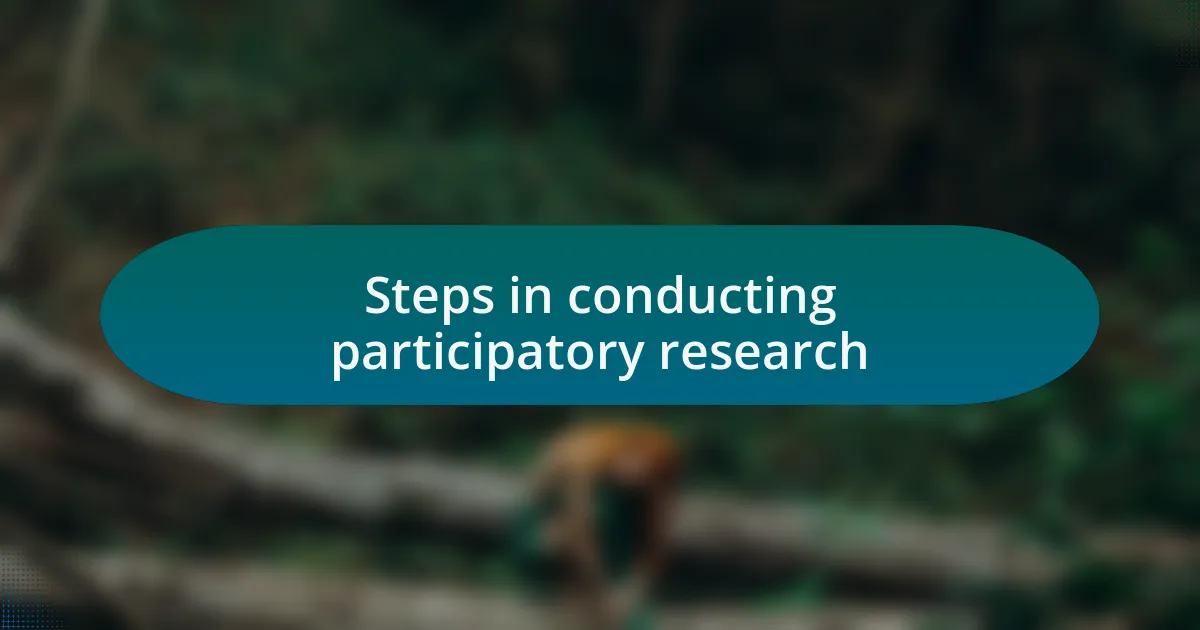
Steps in conducting participatory research
The first step in conducting participatory research is identifying and engaging with the community. I vividly remember walking through a small village, eager to understand their unique challenges. It was eye-opening to see the energy shift when I introduced myself as a collaborator rather than an outsider. How often do we forget the importance of this initial engagement?
Once the community is engaged, building a shared understanding of the research goals is crucial. I often use workshops to facilitate discussions, allowing everyone to voice their needs and expectations. During one session, a community member shared a personal story that highlighted a hidden concern about water quality. This moment reminded me that real insights often come from personal narratives—don’t you think stories can illuminate issues that data alone cannot?
Finally, ensuring that the research process remains flexible is essential for gathering meaningful insights. In my last project, we had to adapt our methods halfway through based on participant feedback. I was surprised at how willing people were to experiment with new approaches when they saw their input mattered. It really made me ponder: how can we uphold the integrity of our research while still being open to change?
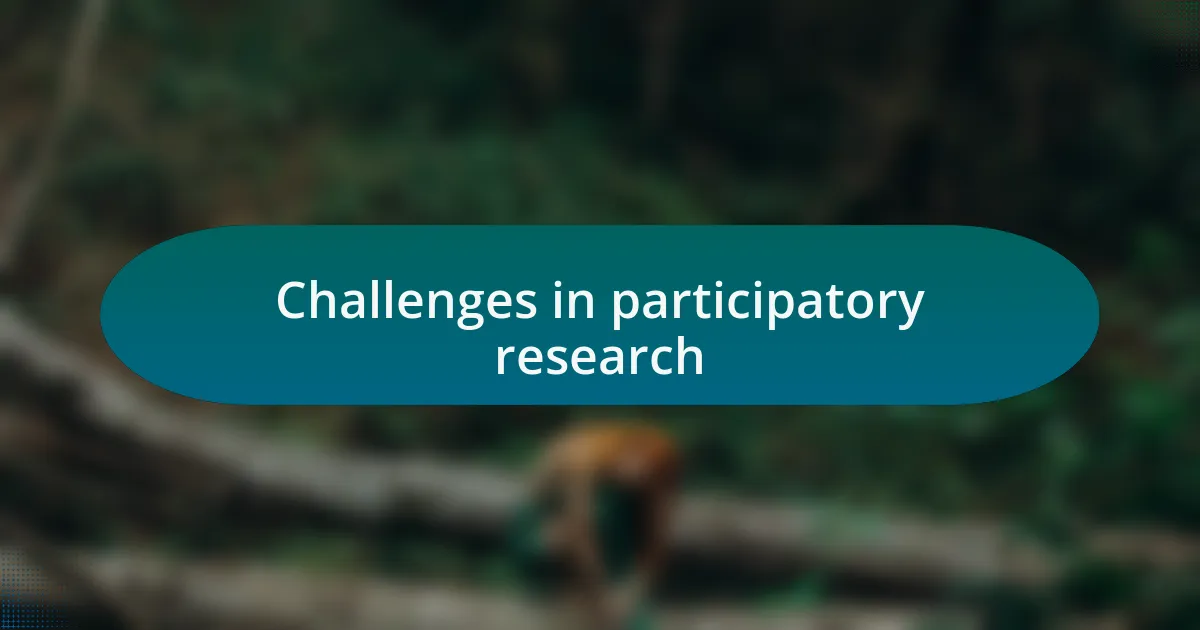
Challenges in participatory research
Participatory research can be incredibly rewarding, yet it faces significant challenges. One of the most prominent issues I’ve encountered is navigating varying power dynamics within the community. During a project focused on education, I noticed that some voices dominated discussions, often overshadowing the more quiet yet equally important perspectives. It made me reflect: how do we ensure that everyone’s voice is heard, even those who might be reluctant to speak up?
Another challenge involves differing expectations among stakeholders. In a recent project centered on health, I was struck by the diverse priorities expressed by community members and funding organizations. It was a daunting task to manage these expectations while still working toward a common goal. I often wondered, how can we align such disparate interests without compromising the integrity of the research?
Lastly, maintaining trust throughout the research process can be tough. In one instance, I realized too late that our initial data collection methods felt invasive to some participants. After addressing their concerns openly, I saw how crucial transparency can be. It’s a reminder of the delicate balance we must strike—if we don’t build and maintain trust, what foundation do we have for effective collaboration?